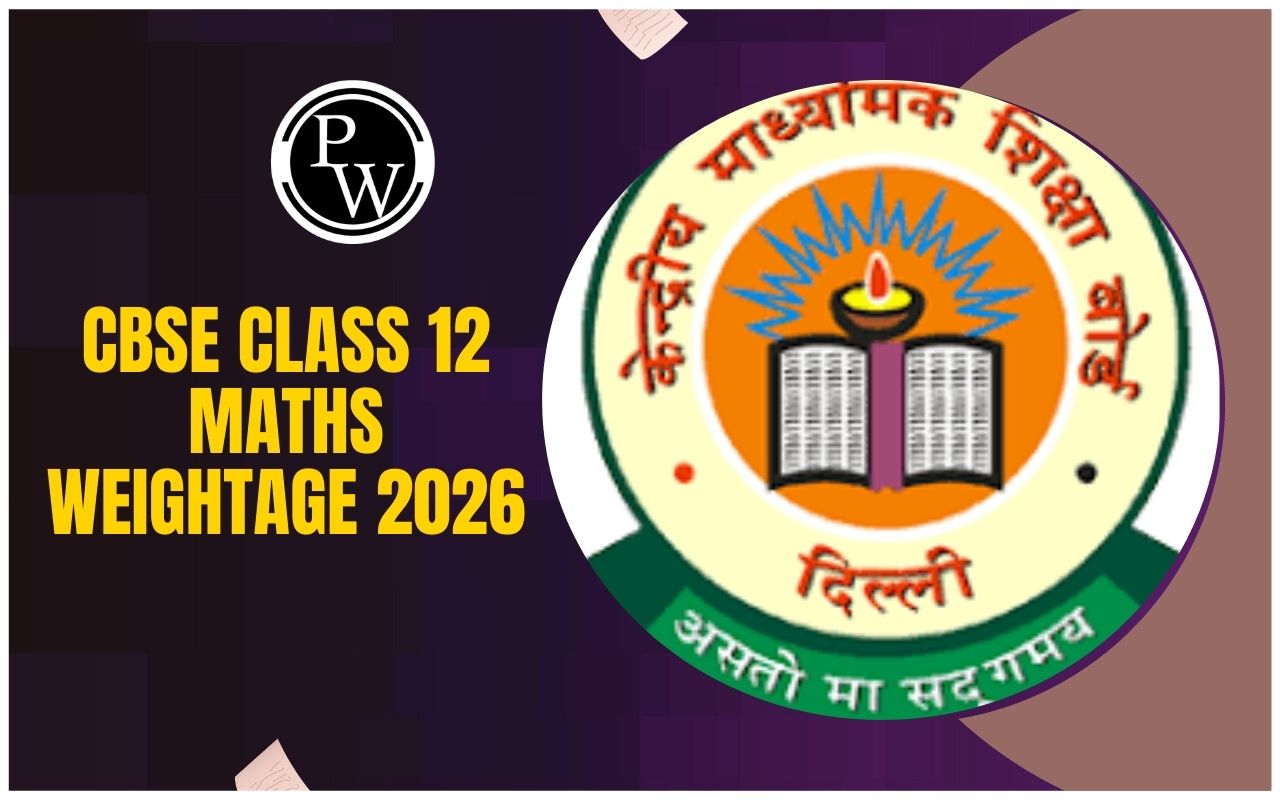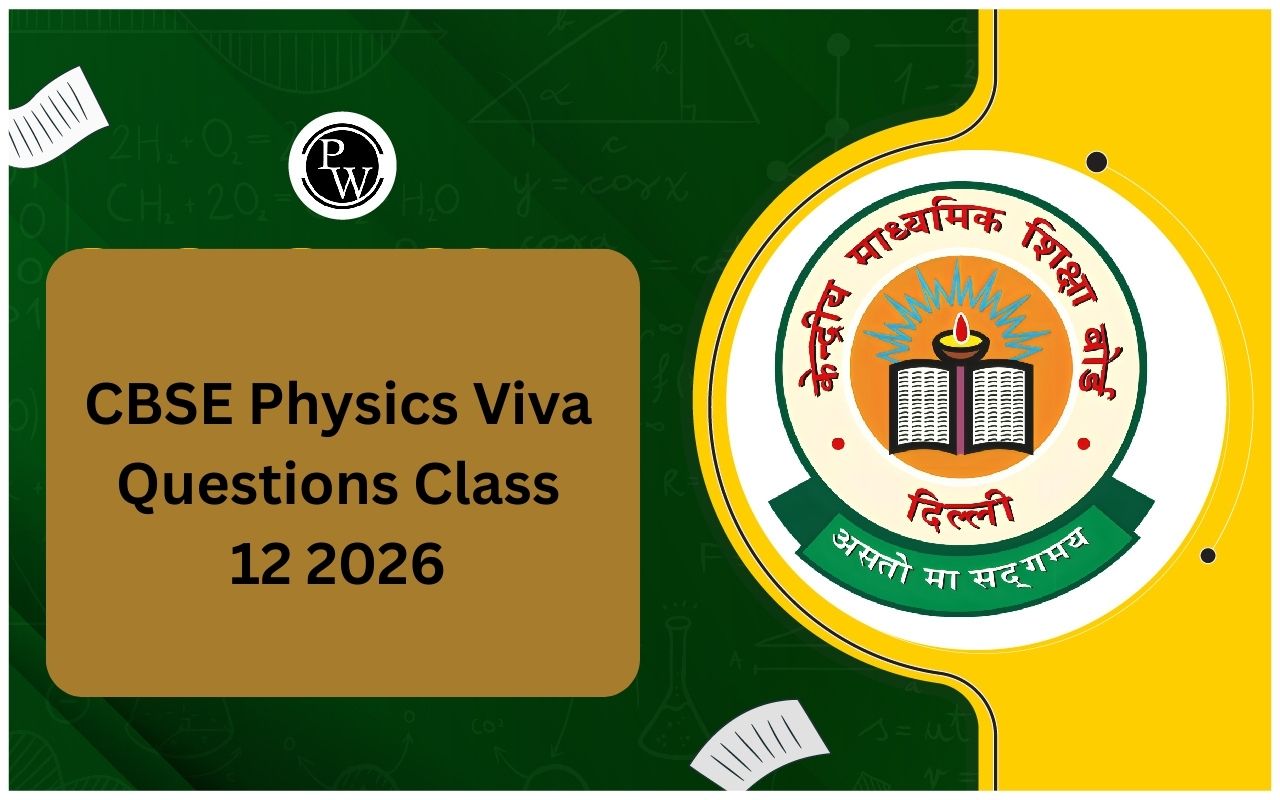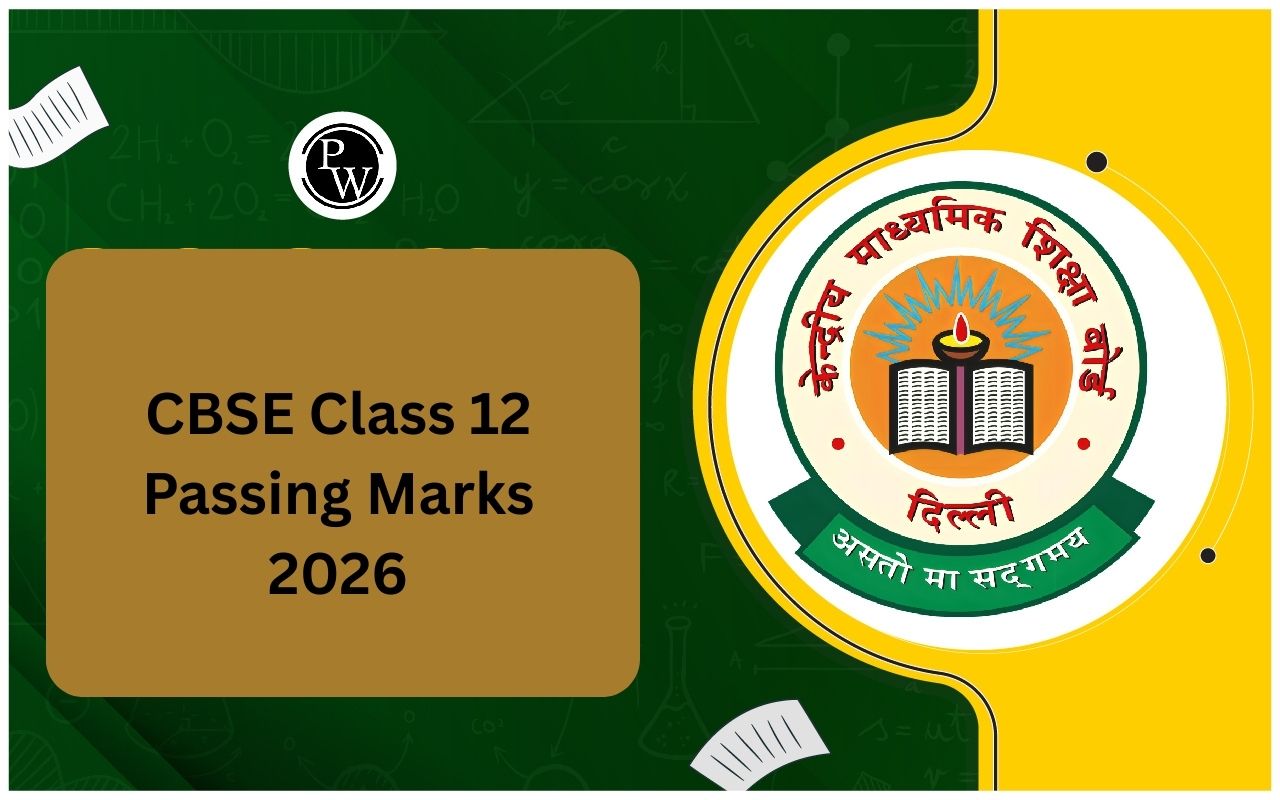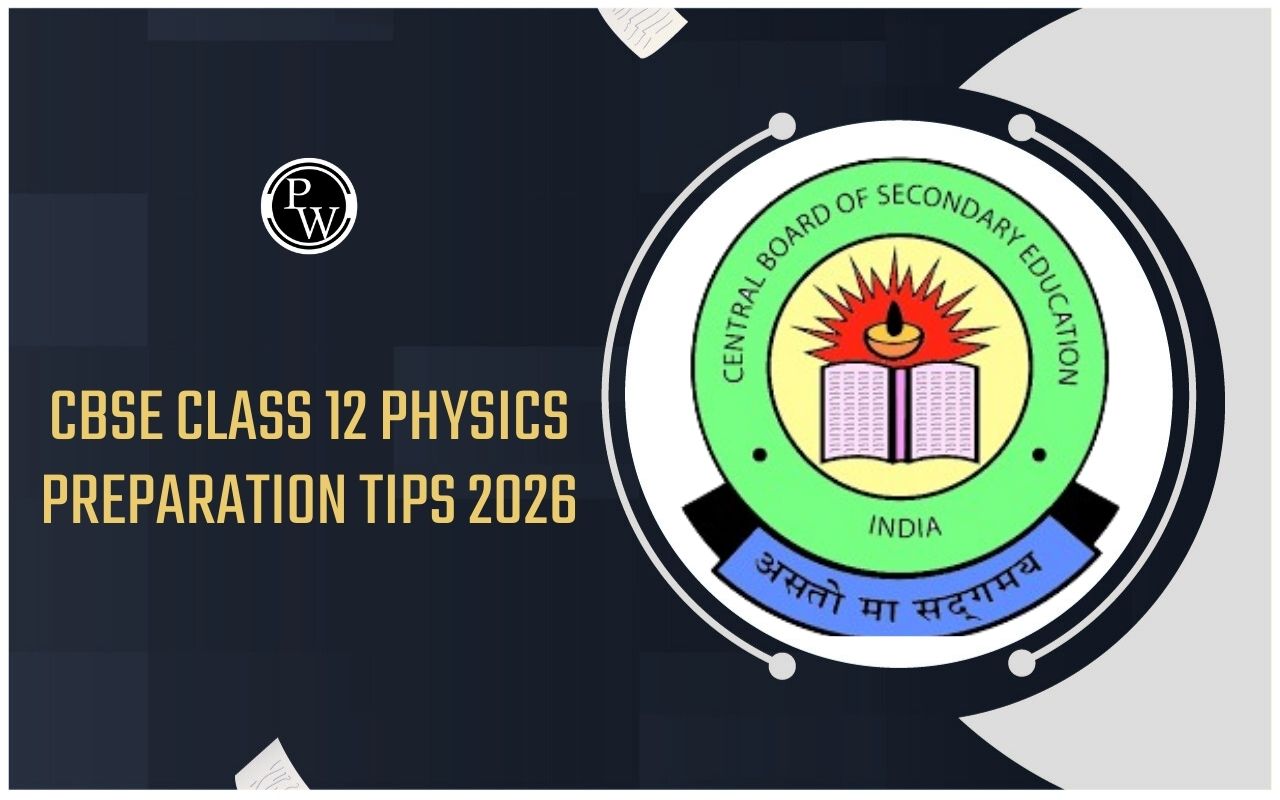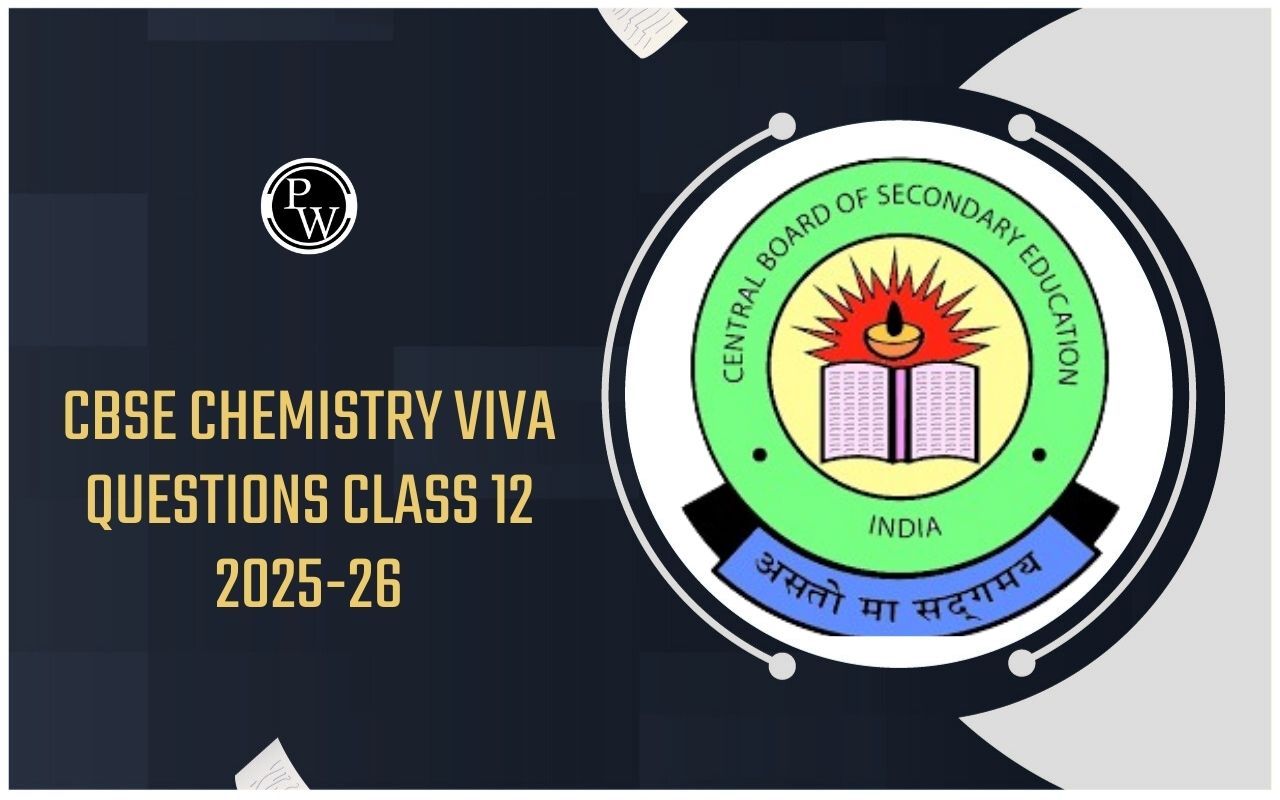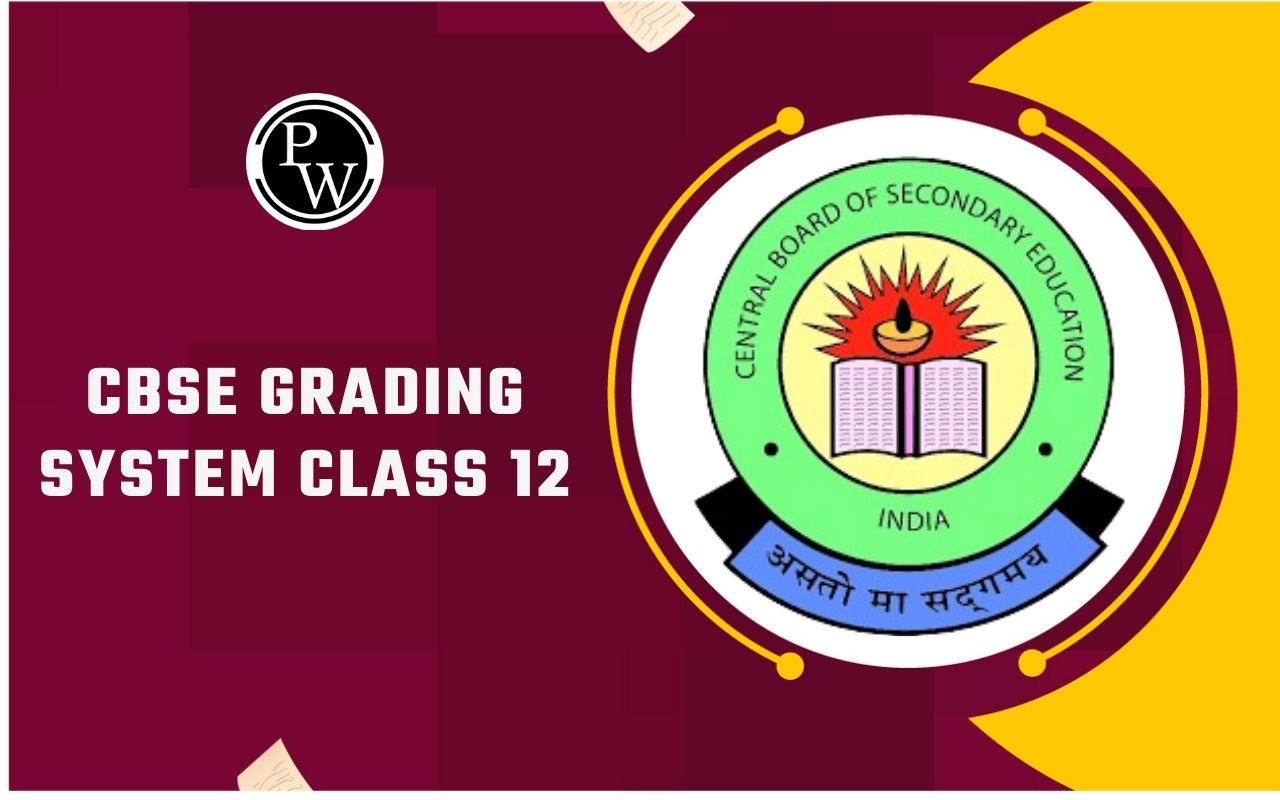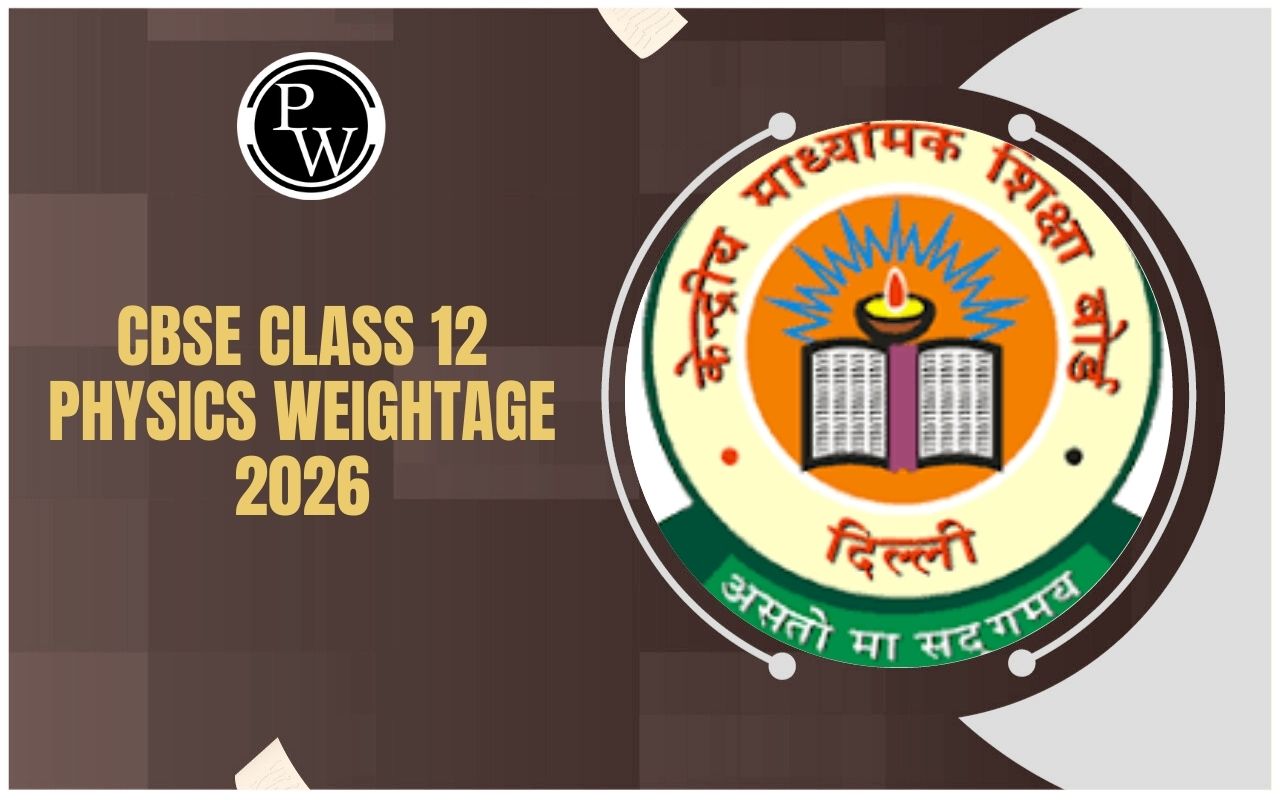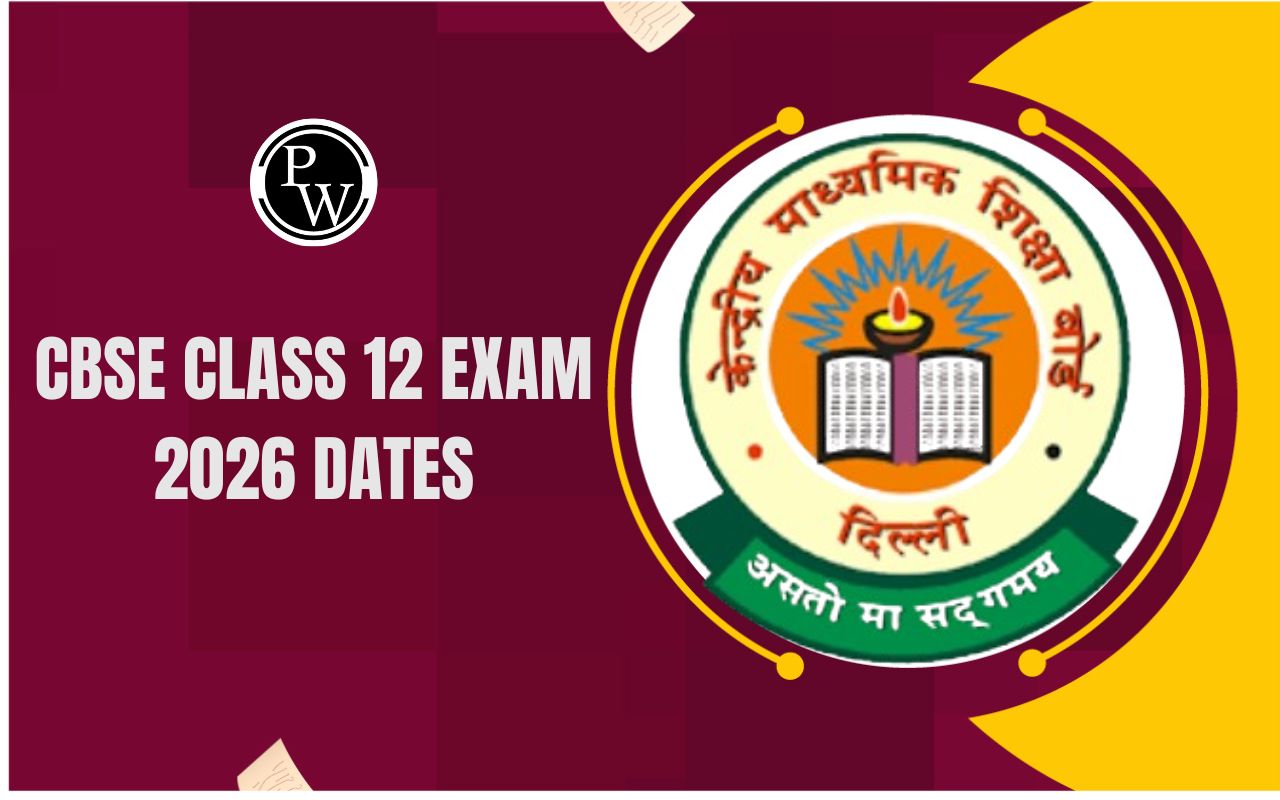
CBSE Class 12 Chemistry Notes: The CBSE Class 12 Chemistry Notes provide a comprehensive understanding of key topics covered in the CBSE syllabus, including Solid State, Solutions, Electrochemistry, Chemical Kinetics, Surface Chemistry, Coordination Compounds, and Biomolecules. These notes are designed according to the latest CBSE exam pattern, which includes objective-type questions, short and long-answer questions, and numerical problems. Covering both organic and inorganic chemistry, these notes help students grasp fundamental concepts, prepare for board exams, and practice with previous years’ questions (PYQs) to enhance their problem-solving skills and boost their confidence for the final exam.
CBSE Class 12 Chemistry Notes Chapter Wise PDF
Below are the chapter-wise notes for CBSE Class 12 Chemistry:CBSE Class 12 Chemistry Notes Topic Wise Summary
Here is a topic-wise summary of the CBSE Class 12 Chemistry notes:Chapter 1 The Solid State
This chapter explain the nature of solids, focusing on their structures and properties. Key topics include unit cells, types of lattices, and crystal systems. It covers the classification of solids into ionic, covalent, molecular, and metallic types. The chapter also discusses imperfections in solids and their effects on material properties.Chapter 2 Solutions
The chapter covers the nature of solutions, including the types (saturated, unsaturated, supersaturated) and concentration units such as molarity and molality. It discusses colligative properties, including boiling point elevation, freezing point depression, and osmotic pressure, explaining how solute concentration affects these properties.Chapter 3 Electrochemistry
This chapter focuses on electrochemical cells and their functioning. It covers redox reactions, galvanic cells, electrolytic cells, and standard electrode potentials. Key concepts include Faraday's laws of electrolysis, and the application of electrochemistry in real-life scenarios like batteries and electroplating.Chapter 4 Chemical Kinetics
Chemical Kinetics deals with the study of reaction rates and factors influencing them. Topics include the rate of reaction, order of reaction, rate laws, and the Arrhenius equation. The chapter explores how factors like temperature, concentration, and catalysts affect reaction rates.Chapter 5 Surface Chemistry
Surface Chemistry examines phenomena at surfaces and interfaces, such as adsorption, catalysis, and colloidal systems. It includes the study of adsorption isotherms (Freundlich and Langmuir), and the properties and types of colloids, including sols, gels, and emulsions.Chapter 6 General Principles and Processes of Isolation of Elements
This chapter outlines the general methods for extracting metals from their ores. It covers principles of metallurgy, including ore concentration, extraction methods (pyrometallurgy, hydrometallurgy), and refining processes.Chapter 7 The p-Block Elements
The p-Block Elements chapter covers the chemistry of elements in groups 13 to 18 of the periodic table. It includes the properties, reactions, and uses of these elements and their compounds, such as boron, carbon, nitrogen, oxygen, and halogens.Chapter 8 The d-and f-Block Elements
This chapter explain the properties and reactions of transition metals (d-block) and inner transition metals (f-block). It includes discussions on electronic configurations, oxidation states, color, and magnetic properties, as well as the formation and significance of complex compounds.Chapter 9 Coordination Compounds
Coordination Compounds discusses the structure and bonding of coordination complexes. It covers coordination number, types of ligands, nomenclature, VSEPR theory, and isomerism in coordination compounds.Chapter 10 Haloalkanes and Haloarenes
This chapter investigates the properties and reactions of haloalkanes (alkyl halides) and haloarenes (aryl halides). It discusses their methods of preparation, mechanisms of substitution and elimination reactions, and their applications in organic synthesis.Chapter 11 Alcohols, Phenols, and Ethers
This chapter covers the properties and reactions of alcohols, phenols, and ethers. It includes discussions on their preparation, chemical behavior, and uses in various chemical processes and industries.Chapter 12 Aldehydes, Ketones, and Carboxylic Acids
This chapter focuses on the chemistry of aldehydes, ketones, and carboxylic acids. It includes their preparation, reactions, and important tests for their identification. The chapter also explores their roles in organic synthesis and their applications.Chapter 13 Amines
Amines are discussed in this chapter, including their classification, preparation, and reactions. It covers the properties of primary, secondary, and tertiary amines, and their use in various chemical processes.Chapter 14 Biomolecules
This chapter covers the chemistry of biomolecules, including carbohydrates, proteins, lipids, and nucleic acids. It explores their structures, functions, and roles in biological systems.Chapter 15 Polymers
The Polymers chapter explain the types, properties, and methods of polymerization. It includes discussions on addition and condensation polymers, as well as their applications in various industries.Chapter 16 Chemistry in Everyday Life
This chapter examines the role of chemistry in daily life. It covers the chemistry behind everyday products and processes, including pharmaceuticals, detergents, and food additives, and their impact on health and the environment.Benefits of CBSE Class 12 Chemistry Notes
- Comprehensive Coverage : These notes cover all the chapters and key concepts included in the Class 12 Chemistry syllabus ensuring that students have a thorough understanding of the subject matter.
- Simplified Explanations : Complex topics and theories are broken down into simpler, easy-to-understand language making it easier for students to grasp challenging concepts.
- Quick Revision Resource: The notes provide a concise summary of important topics, formulas, and reactions, making them an excellent resource for quick revisions before exams.
- Clear Structure : Each chapter is organized systematically with key points, equations, and important concepts highlighted. This structured approach helps students to follow and retain information more effectively.
- Enhanced Understanding : By studying these notes students can reinforce their learning, clarify doubts, and improve their problem-solving skills, leading to a better grasp of chemistry concepts.
- Exam Preparation : The notes include important questions and sample problems that are useful for practice, helping students to prepare for both board exams and competitive exams like IIT JEE and NEET.
- Time Management : With well-organized notes students can manage their study time more efficiently focusing on key areas and avoiding unnecessary detail which is particularly helpful during exam preparation.
CBSE Class 12 Chemistry Notes FAQs
How do Class 12 Chemistry notes help in understanding complex concepts?
Class 12 Chemistry notes simplify complex topics by breaking them down into clear, easy-to-understand explanations.
Can these notes be used for quick revision before exams?
Yes, Class 12 Chemistry notes are designed to provide a concise summary of important topics and formulas, making them ideal for quick revision before exams. They help students review key concepts efficiently.
Are these notes useful for competitive exams like IIT JEE and NEET?
Yes, the notes cover important topics and provide a strong foundation in Chemistry. They include important concepts and questions that are relevant for competitive exams like IIT JEE and NEET.
How do Class 12 Chemistry notes enhance exam preparation?
By providing a structured overview of each chapter, highlighting key points, and including practice questions, the notes help students prepare effectively for their exams.
🔥 Trending Blogs
Talk to a counsellorHave doubts? Our support team will be happy to assist you!

Check out these Related Articles
Free Learning Resources
PW Books
Notes (Class 10-12)
PW Study Materials
Notes (Class 6-9)
Ncert Solutions
Govt Exams
Class 6th to 12th Online Courses
Govt Job Exams Courses
UPSC Coaching
Defence Exam Coaching
Gate Exam Coaching
Other Exams
Know about Physics Wallah
Physics Wallah is an Indian edtech platform that provides accessible & comprehensive learning experiences to students from Class 6th to postgraduate level. We also provide extensive NCERT solutions, sample paper, NEET, JEE Mains, BITSAT previous year papers & more such resources to students. Physics Wallah also caters to over 3.5 million registered students and over 78 lakh+ Youtube subscribers with 4.8 rating on its app.
We Stand Out because
We provide students with intensive courses with India’s qualified & experienced faculties & mentors. PW strives to make the learning experience comprehensive and accessible for students of all sections of society. We believe in empowering every single student who couldn't dream of a good career in engineering and medical field earlier.
Our Key Focus Areas
Physics Wallah's main focus is to make the learning experience as economical as possible for all students. With our affordable courses like Lakshya, Udaan and Arjuna and many others, we have been able to provide a platform for lakhs of aspirants. From providing Chemistry, Maths, Physics formula to giving e-books of eminent authors like RD Sharma, RS Aggarwal and Lakhmir Singh, PW focuses on every single student's need for preparation.
What Makes Us Different
Physics Wallah strives to develop a comprehensive pedagogical structure for students, where they get a state-of-the-art learning experience with study material and resources. Apart from catering students preparing for JEE Mains and NEET, PW also provides study material for each state board like Uttar Pradesh, Bihar, and others
Copyright © 2026 Physicswallah Limited All rights reserved.
